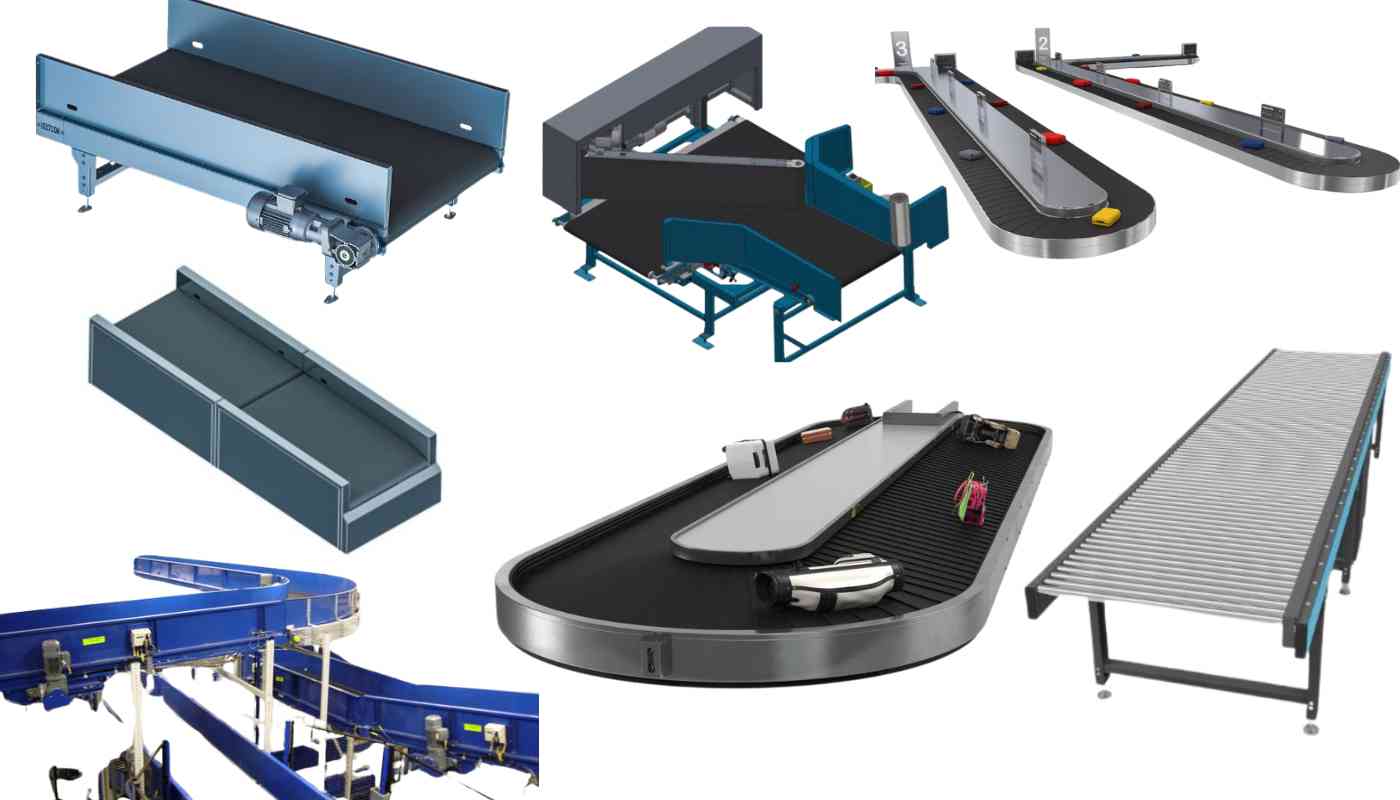Airport Baggage Handling Systems in Malaysia in 2024
When we think about the intricate choreography of travel, one element that often escapes our notice yet plays a pivotal role in ensuring smooth journeys is the baggage handling system. As travelers, we entrust our belongings to these complex networks of technology and logistics, expecting them to effortlessly transport our luggage from check-in to destination. In Malaysia, a burgeoning hub of aviation and commerce, the evolution of baggage handling systems reflects not only technological advancements but also the country’s commitment to efficiency and innovation in its transportation infrastructure.

Early Innovations
The history of baggage handling systems can be traced back to the early days of air travel, where manual labor predominated. Imagine bustling airport terminals with porters lugging suitcases onto aircraft, a scene vastly different from the streamlined processes we witness today. However, as air travel became more accessible and airports busier, the need for automation became apparent.
Rise of Automation
The dawn of automated baggage handling systems revolutionized the efficiency of airport operations. Instead of manual sorting and loading, conveyor belts and sorting machines now orchestrate the flow of luggage with precision. Airport baggage handling systems have evolved into sophisticated networks of interconnected components, optimizing space, time, and manpower.
Components of Modern Baggage Handling Systems
At the heart of every modern airport’s baggage handling infrastructure lies a network of conveyor belts snaking their way through terminals and behind the scenes. These baggage conveyor systems form the backbone of the operation, transporting luggage from check-in counters to departure gates and, ultimately, to the aircraft.
Automated Sorting Systems
Gone are the days of manual sorting; today’s airports rely on automated baggage handling systems equipped with state-of-the-art sorting technology. Baggage is scanned, tagged, and sorted based on its destination, ensuring timely delivery to the correct aircraft.
Security Screening Integration
In an era marked by heightened security concerns, baggage security screening systems play a crucial role in ensuring passenger safety. These systems employ advanced imaging and detection techniques to identify potential threats within luggage, contributing to the overall security of the aviation industry.
RFID Baggage Tags
One of the most significant advancements in baggage handling technology is the adoption of RFID (Radio Frequency Identification) baggage tags. These tags contain unique identifiers that allow for real-time tracking of luggage throughout its journey, reducing the risk of mishandling and loss.
Baggage Tracking Technology
In addition to RFID tags, airports are increasingly investing in baggage tracking technology that provides passengers with visibility into the status of their luggage. Mobile apps and self-service kiosks allow travelers to monitor the whereabouts of their belongings, offering peace of mind and convenience.
Growth of Aviation Sector
As Malaysia solidifies its position as a regional aviation hub, the demand for advanced baggage handling systems continues to grow. With airports like Incheon and Gimpo setting the standard for efficiency and innovation, Malaysia is keen to leverage similar technologies to enhance its own transportation infrastructure.
Partnership with Industry Leaders
To meet this demand, Malaysia has forged partnerships with leading baggage handling system vendors and manufacturers. These collaborations ensure that airports across the country have access to the latest technology and expertise in baggage handling and logistics.
Future Outlook
Looking ahead, the future of baggage handling in Malaysia is poised for further innovation. As airports embrace smart technology and automation, passengers can expect an even more seamless travel experience. From expedited check-in processes to enhanced security measures, the evolution of baggage handling systems will continue to shape the way we travel.
Improved Passenger Experience
One of the primary benefits of advanced baggage handling systems is the improved passenger experience. Faster check-in times, reduced wait times at baggage claim, and fewer instances of lost luggage contribute to a more pleasant journey for travelers.
Operational Efficiency
For airlines and airports, investing in modern baggage handling infrastructure translates to operational efficiency and cost savings. Automated systems streamline processes, minimize handling errors, and optimize resource allocation, ultimately improving the bottom line.
Security Considerations
However, with innovation comes the need for robust security measures. As airports implement baggage security screening systems, they must balance the imperative of safety with the need to maintain efficient passenger flow. Striking this balance requires ongoing investment in technology and training.
The Future of BHS
In conclusion, the evolution of baggage handling systems in Malaysia reflects a commitment to excellence in aviation infrastructure. From the humble beginnings of manual labor to the sophisticated networks of automation and technology we see today, the journey has been one of continual innovation and adaptation. As Malaysia looks to the future, the optimization of baggage handling processes will remain a cornerstone of its efforts to enhance the travel experience for passengers and stakeholders alike. Whether it’s through the integration of RFID technology, the expansion of automated sorting systems, or the implementation of smart airport solutions, the possibilities for advancement are limitless. In the dynamic landscape of air travel, one thing is certain: the evolution of baggage handling systems will continue to shape the way we move and connect with the world.
FAQs
What are the key components of baggage handling systems in Malaysia?
Baggage handling systems in Malaysia comprise conveyor belts, automated sorting systems, and integrated security screening technology to ensure efficient and secure luggage processing.
How do RFID baggage tags improve the travel experience in Malaysia?
RFID baggage tags allow for real-time tracking of luggage, providing passengers with peace of mind and reducing the likelihood of lost or mishandled baggage during their journey through Malaysian airports.
What are the benefits of investing in modern baggage handling systems for airports in Malaysia?
Modern baggage handling systems improve operational efficiency, enhance passenger experience, and contribute to overall safety and security measures, making them a valuable investment for Malaysian airports aiming to streamline their operations.